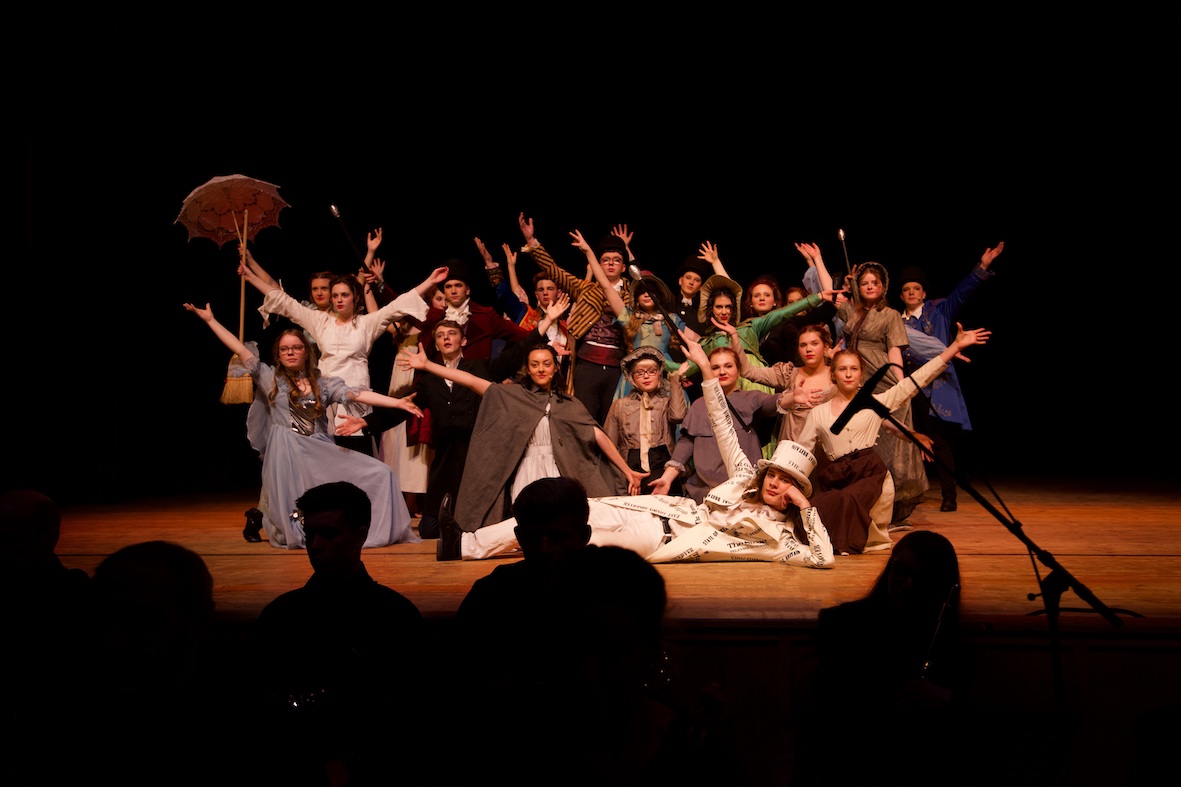Never underestimate the power of a school production – for every single person involved. When you meet former students, sometimes from decades back in my case, it’s usually taking part in Oliver! or A Midsummer Night’s Dream that they reminisce about with shining eyes.
Most importantly it’s a terrific bonding exercise. We hear a lot about taking part in school teams and matches and what a fine thing it is. Well, if the sports field is not your thing, as anyone who’s ever done it knows, then being part of a production (or playing an instrument in an ensemble) comes with all the same benefits – possibly even more so because there are so many different ways of getting involved.
The student who doesn’t actually want to perform might, for example, do some stage management, make costumes, help to dress performers, work on the lighting desk, design posters, market the show, help with front of stage and a great deal more. Meanwhile there are actors and, if it’s a musical, probably musicians too.
Talking of musicians, I’m always struck by what a fine thing it is to see a school show band comprising students and teachers/adults all working together on an equal footing. It gives those teachers the chance to see pupils in a different context and it’s a real education for students to see their teachers doing something different. I once played violin (and, heaven help me, viola in one number) for a school production of Fiddler on the Roof. I was in the English department, so my participation took some students by surprise. Only this week a former teaching colleague (he was Head of History) who’s now a school governor in a different school told me he’s going to join the school orchestra with his double bass because it’s good for the students to see a governor doing something hands-on.
I suspect too that for some audience members a school production may be the first taste of live theatre and that’s got to be a force for the good. I was five years old when the school my father was teaching in did The Mikado. He was supervising front of house. My mother and I were in the audience and I was unforgettably riveted. At that age you don’t notice that these are enthusiastic school students rather than West End performers. You just suck up the glittering magic of theatre. A generation or so later, I had another very memorable school theatre experience from an audience perspective when my son, at 13, took part in one of the first school productions of Jesus Christ Superstar.
It isn’t always easy to get a school production going these days. There are budgetary constraints and many heads – much as they like something impressive to bring governors and so on to – are wary of anything which might distract from exam results. Actually, as any teacher of arts subjects knows, participation in a school production is such a formative, confidence building experience that it’s far more likely to enhance examination results than diminish them.
Organisations like Coram Shakespeare Schools Foundation can help schools, including primary and special schools, with limited resources to mount short shows – reduced versions of Shakespeare plays, which are then performed in local festivals. When I talked to the SSF movers and shakers they fondly recalled one little girl, from a socio-economically deprived immigrant family who said very positively and happily: “Now that I’ve been in a Shakespeare play I can be a doctor”.
Then there are companies such as Theatrical Rights Worldwide who manage the rights for shows. If a show is in copyright then you have to pay a fee for the right to use it. I was once in a school where the teacher directing the show didn’t, apparently, know this. Someone reported her and the show had to be cancelled. “Disappointment” doesn’t begin to cover it!
These days there are schools versions of big shows such as Les Miserables, Matilda the Musical or Six. TRW and other companies which do similar work sell packages which can include notes for teachers, backing tapes and other resources to support school shows.
Traditionally school productions were staged in school halls – without raked seating which meant that sight lines were often poor, especially for Granny or a younger sibling seated near the back. These days many schools have purpose-built theatres. These are commonplace in the private sector but actually also quite common in maintained sector schools. I was the journalist/scribe for a Theatres Trust conference about school theatres and I was surprised at just how ubiquitous school theatres are – even though some of them have to double up for other functions such as assemblies or lectures from visiting speakers and not all were built with as much teacher consultation as the project needed.
Even if your school doesn’t have a theatre and you have to make do with an old-fashioned hall you might make a case for fold-away raked seating. Perhaps there’s a local sponsor who might help to buy or hire it? It makes a huge difference to the performance experience for all concerned.
In short, students deserve the opportunity to participate in performance events at school so let’s all do our utmost to make sure they happen. We really can’t deny them something which is so demonstrably powerful. And fun – don’t underestimate the importance of that either.
@SusanElkinJourn
IMAGE ABOVE: by Philipp Falkenhagen



